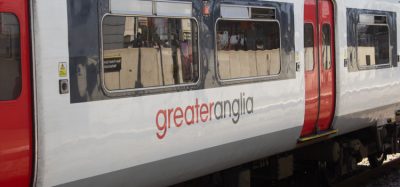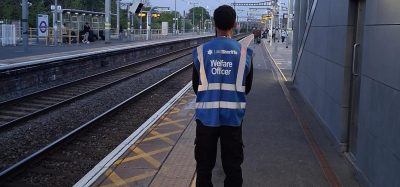European rail association presidents call for COVID-19 measures from EC
Posted: 31 March 2020 | Global Railway Review | No comments yet
The presidents of ALLRAIL, CER, ERFA, UIP and UIRR have called on the European Commission to introduce new measures to protect the rail industry amidst the COVID-19 crisis.


In a joint letter written to the European Commission’s (EC) Executive Vice President, Commissioner for Transport and Commissioner for Cohesion and Reforms, presidents from five European rail associations – the Alliance of Passenger Rail New Entrants in Europe (ALLRAIL), Community of European Railway and Infrastructure Companies (CER), European Rail Freight Association (ERFA), International Union of Wagon Keepers (UIP) and International Union for Road-Rail Combined Transport (UIRR) – have called for concrete measures to be introduced by the EC to face the COVID‐19 pandemic and its economic consequences on the European rail industry.
Outlined measures
The measures suggested in the letter include:
Necessary modifications to the Cohesion Policy and CEF regulatory framework
- Extension of the eligibility period for the costs of the project by one year (until the end of 2024)
- Increase of pre‐financing ceiling
- More flexibility with payment claims (declaration of expenditures)
- Possible increase of co‐financing rate and/or creation of fast‐lane procedures of obtaining debt measures (e.g. from European Investment Bank (EIB)) in order to cover increased beneficiary’s own contribution
- Allowing phasing of the projects in CEF
- Allowing financing justified cost increase in the ongoing projects to certain extent.
Other necessary modifications:
- Flexibility for procurement rules not only for health supplies and services, but also in other areas, like transport, as the case may be. In particular, more relaxed rules should be designed on annexing already concluded contracts, including PSO contracts ‐ assuming that there is a causal link to the current crisis
- Easing procedures to obtain and have access to various European Union (EU) financial instruments, including European Fund for Strategic Investments (EFSI) or EIB loans
- General regulatory adjustments so that state aid can flow to companies in the need (regardless of their size).
Railways ensure the critical mobility of people and goods
The letter draws attention to and highlights the efforts of the rail industry during the time of the crisis, and how it is pivotal in facilitating the smooth and efficient movement of both passengers and freight.
The letter states: “We are well aware that keeping European mobility and logistics operational is essential. All European rail operators, infrastructure managers and other service providers are doing their best in order to respond to the critical mobility needs in these dire times. European rail freight companies – together with combined transport and wagon load operators, wagon keepers, workshops and mobile services – are offering concrete solutions to maintaining consumer goods supplies running, with a special focus on food supplies, health supplies and medicines.”
Subsequently, the authors thanked the EC for its efforts in ensuring the continued movement of freight during the COVID-19 pandemic: “We wish to underline our appreciation for the initiative taken by the European Commission on 16 March [2020] and again on 23 March [2020] to provide for Green Lanes at border‐crossings, to expedite the transportation of goods. The Commission Guidelines, as much as the following Commission Communication. represent a concrete help that will help freight traffic continue across the continent.”
A heavy economic impact
However, attention was drawn to the economic impact that the coronavirus pandemic is having on the industry due to travel restrictions, border closures and lower passenger numbers: “The rail sector is suffering from the containment measures taken by member states to fight the spread of the pandemic and from the consequent huge drop of the mobility demand.”
As a result, the letter called for support to ensure the continued operation of the industry: “We call on the European Union, as well as the member states, to ensure that railway companies, combined transport and wagon load operators, wagon keepers, workshops and mobile services can successfully continue their business activities during, as well as after, the crisis and we commit all our efforts in this same direction.”
A correct use of the new state aid Temporary Framework
Significant emphasis was put on the appreciation of the new framework: “The state aid Temporary Framework recently adopted by the European Commission is most welcome, and member states’ authorities should make the widest possible use of it. We particularly appreciate the readiness of the Commission to take action – something that enabled member states to already take initiatives under the said framework. We hope that the member states will adhere to this requirement without exception and ensure that all companies in the railway sector will receive fair and adequate support vis‐à‐vis other transport modes.”
However, the letter outlines additional measures that need to be completed in order for rail bodies to take advantage of the framework: “We would welcome if the Commission could explicitly confirm that member states may allocate necessary additional resources in the context of the PSO contracts without asking for the prior authorisation of the Commission. In addition, aid schemes should be horizontal and sectorial, and need to include service providers associated within the transport sector – such as ticket vendors, catering companies, station managers and freight terminals – since they are immediately and directly affected by the withdrawal of traffic.”
Short-term liquidity needs
The letter stressed the need for guaranteed short-term liquidity in order to ensure that rail companies and businesses are able to stay afloat and secure their workforces during the COVID-19 pandemic.
As a result, the letter calls for: “Special attention must be dedicated to providers of open access services. Aid in the form of direct grants or tax deductions should be the preferential channel through which liquidity is ensured and bankruptcies are prevented, with caps that for capital intensive industries such as rail should be substantially higher than the €800,000 cap provided by the Commission Temporary Framework.”
Necessary modification of existing EU funding regulations
Though the coronavirus outbreak has halted regular operations and forced a new way of business: “The COVID‐19 crisis has already severely affected ongoing EU‐funded rail investments. Difficult financial and operational situations of contractors have already translated into delays and sometimes even full stoppage of both construction works, as well as timely delivery of railway equipment or rolling stock.”
Attention was, therefore, drawn to the need for ensuring that rail infrastructure investments will still be in place following the resumption of business-as-usual operations: “In the longer term, investments for rail infrastructure projects should also be secured and promoted further, as they have a direct and positive effect on the regional and national economies.”
The letter continued: “Most of the contracts require, at this point, profound modifications: EU funded investments should be distributed onto two programming periods, modified or allowed to be prolonged for one year, at least. Nonetheless, none of these possibilities are today compatible with the existing EU legislation, so that, in case the Commission does not take appropriate action, we may end up with an investments crisis in the rail sector. We call, therefore, on the Commission to propose a number of modifications to current EU regulations in order to secure the accomplishment of ongoing EU funded railway investments.”
Rail staff as strategic workforce
Amidst such uncertain and unstable times, rail and intermodal workers have endlessly continued working to ensure that railway operations across Europe can continue to function as much as possible. The letter thanks all those involved for “their incredible courage and firm dedication.
In order to facilitate the continued movement of both passengers and freight, the letter outlines: “Train drivers and other operational staff need to be regarded as strategic workforce, and, therefore, be allowed to cross borders without unnecessary restrictions in order to pick up and deliver trains smoothly.”
It continued: “As stressed in the European Commission Communication on Green Lanes, train drivers and operational staff should be exempted from national rules, such as travel restrictions and mandatory quarantine. In order to support rail companies and staff in the daily operation, the measures in place for the road shall be extended as much as possible to the rail sector – in particular, for the simplification of the accompanying documentation of goods, health screening and the prorogation for the validity of complementary certificates and driver’s licenses.”
Joint European efforts to support rail freight services
As previously outlined, ensuring that rail and intermodal freight services continue to run is of the upmost importance in combatting the COVID-19 pandemic. As a result, the letter outlined that: “Maintenance facilities need to be able to provide a minimum capacity to maintain rolling stock and locomotives in service. Given the circumstances, it is even more important to coordinate the approach to capacity restrictions and reduce possible traffic disturbances. Recognition of documents in electronic form in the different customs procedures (import/export/transit) shall be considered, due to the current exceptional situation. Only in this way can customs clearances for goods transport currently be carried out without massive delays, thereby allowing supply chains’ logistics to be maintained.”
Stay Connected with Global Railway Review — Subscribe for Free!
Get exclusive access to the latest rail industry insights from Global Railway Review — all tailored to your interests.
✅ Expert-Led Webinars – Gain insights from global industry leaders
✅ Weekly News & Reports – Rail project updates, thought leadership, and exclusive interviews
✅ Partner Innovations – Discover cutting-edge rail technologies
✅ Print/Digital Magazine – Enjoy two in-depth issues per year, packed with expert content
Choose the updates that matter most to you. Sign up now to stay informed, inspired, and connected — all for free!
Thank you for being part of our community. Let’s keep shaping the future of rail together!
Related topics
Cargo, Freight & Heavy-Haul, Coronavirus/COVID-19, Funding & Finance, Operational Performance, Regulation & Legislation, The Workforce
Related organisations
Community of European Railway and Infrastructure Companies (CER), European Commission (EC), European Investment Bank (EIB), European Rail Freight Association (ERFA), European Union (EU), International Union for Road-Rail Combined Transport (UIRR), International Union of Wagon Keepers (UIP)







